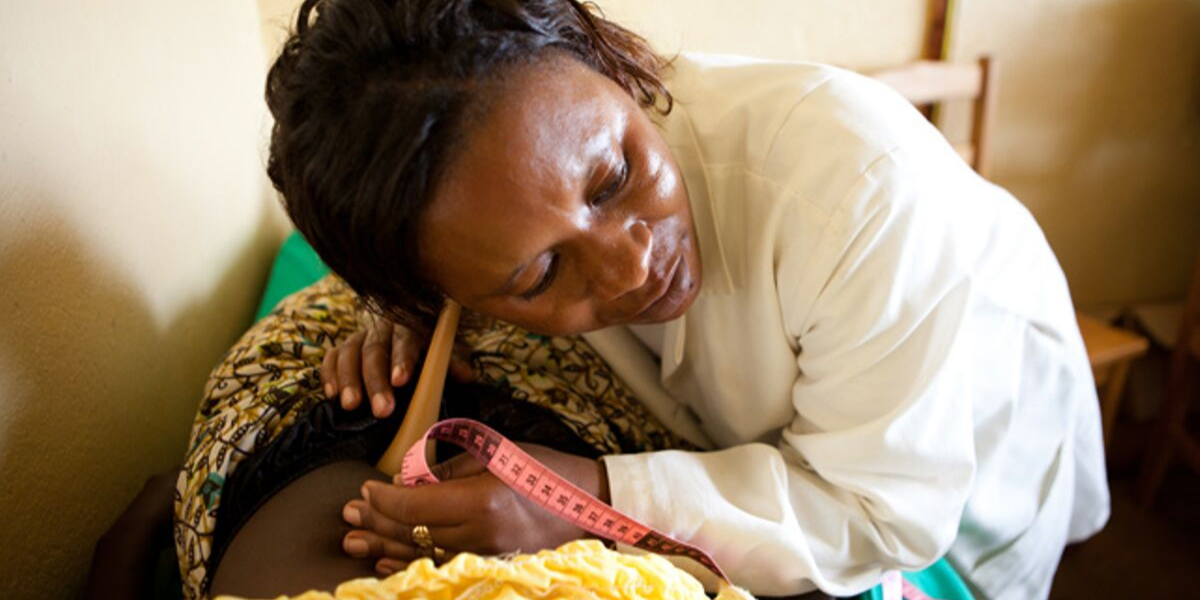
This research project, co-funded by Ammalife, investigated the experiences of maternity healthcare workers in Lilongwe, Malawi. The research was led by Ammalife Change Maker, Abi Merriel, and highlighted how the Malawian health professionals remained committed and resilient despite facing many daily pressures.
Introduction
Healthcare providers are an essential part of a health system. Both the number of healthcare providers available and the quality of care delivered directly affects local health. However, many regions, especially resource-poor areas, are still facing a shortage of healthcare providers. It is estimated that there will be a lack of 12.9 million skilled healthcare workers (HCWs) by 2035. However, the WHO predicts over one-third of maternal deaths, over 500,000 of stillbirths, and 1.3 million neonatal deaths could be prevented each year by highly skilled healthcare workers. As such, HCWs could potentially bring about major improvements in healthcare, yet many of them in poorer regions do not have optimal working conditions. For example, there is reduced job satisfaction due to overwork and less interaction opportunities with colleagues. As the work life of HCWs has a direct impact on the quality of care provided, this study resolved to understand the working life of HCWs at district-level facilities in Malawi, including both the positive and negative aspects, so as to facilitate improvements for both workers and patients.
The study
In this study, one-to-one interviews were conducted with 31 HCWs at three different government hospitals near Malawi’s capital city, Lilongwe. Each hospital has more than 3,000 annual deliveries. The duration of the interviews ranged from 30-90 minutes, and the participants’ responses were recorded and transcribed. This data was then processed and analysed, to establish the core themes as well as to further expand the data.
Main Results
After the analysis, several themes were identified, of which the different responses were grouped under:
1. Systemic issues: Wanting a culture of respect, support and praise
The interviewees raised issues including the hierarchical division of staff, as well as the lack of leadership and support by the more experienced staffs. These led to negative feelings among staff, such as frustration, demoralisation and feeling neglected.
2. Staff motivation: Passionate about work and determined to fulfil their dreams
Motivations could be spurred by mutual appreciation among the staff and from patients.
3. Treating patients well physically, socially and spiritually
Apart from addressing some challenging patients, poor rapport among colleagues could lead to delayed discharge of patients. This would then increase the overall workload and compromise patient care.
4.Continuing development to increase independence, recognition and prospects
Many HCWs were motivated to further enhance their knowledge and skills through gaining experience, and attending training courses. However, high competition meant that such opportunities were limited.
5. Incentives to motivate, meet needs and encourage implementation
HCWs were given monetary incentives for attending training courses. Such allowances were substantial, to make up for lost earning during the training period.
6. Professionalism: Commitment, communication and taking responsibility
Upholding professional values and standards such as respectful communication and adhering to one’s role were identified as important ways of maintaining good working relationships.
7. Super-diversity of healthcare staff
The HCWs came from a wide variety of backgrounds, had diverse experiences and motivations, as well as various personal challenges.
8. Resilience: Positivity, teamwork and improvisation
Resilience was identified as a key value, especially for those working in the healthcare sector. Resilience could come from motivation, professionalism, self-belief, teamwork and mutual learning. It could also be enhanced by taking additional jobs and through family bonding.

Skilled healthcare workers have the potential to decrease maternal mortality rates, as well as rates of stillbirths and neonatal deaths.
Full research paper title:
‘Learning from the experience of maternity healthcare workers in Malawi: a qualitative study leading to ten low-cost recommendations to improve working lives and quality of care’,
Read the full research paper in BMC Pregnancy and Childbirth here.
With thanks to Content Volunteer Woo Yan Ting for summarising this article.
